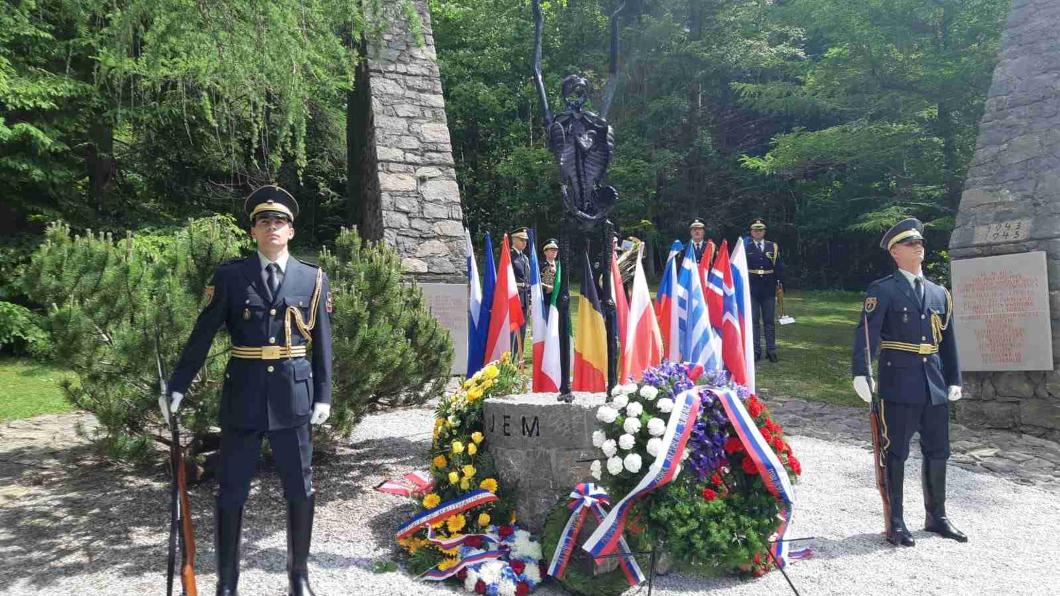
Ceremony on the occasion of the 78th anniversary of the liberation of Camp Ljubelj and a visit to the memorial of the Czech pharmacist B. Lavička, executed by the fascists.
13.06.2023 / 15:06 | Aktualizováno: 11.07.2023 / 16:20
On Saturday, 10 June 2023, the Ambassador of the Czech Republic in Ljubljana, Juraj Chmiel, attended a ceremony and laid a wreath to mark the 78th anniversary of the liberation of the branch of the concentration camp Mauthausen near Ljubelj. Saturday's commemoration was a reminder of the horrors of war and a warning against their recurrence
The camp was founded during World War II due to the construction of the tunnel to improve the German army's transport routes to Yugoslavia. Approximately 2,000 political prisoners from 13 European nations worked there for 23 months under the supervision of guards in extremely difficult conditions. On the same day, a ceremony was also held on the north side of the camp in Austria.
Ambassadors from various countries attended the ceremony and among the distinguished guests was also the President of the National Assembly Mrs Urška Klakočar Zupančič. The delegations laid wreaths at the memorial to the victims.
Speakers emphasized the importance of preserving historical memory and the pursuit of peace, as well as the importance of solidarity and cooperation. During the commemoration, Ambassador Chmiel also recalled the extermination of Lidice on the same day, another violent historical event in which the Central Bohemian village of Lidice was destroyed and a large part of its inhabitants murdered by the German Nazi occupiers.
The celebration at the site of the only concentration camp in Slovenia is organised annually by the town of Tržič, The Union of the Associations for the Values of the National Liberation Movement of Slovenia and the Associations of the National Liberation Movement Tržič.
On 12 June, Ambassador Chmiel, accompanied by the Mayor of Tržič, Mr Peter Miklič, visited several places in Tržič, including Kovor, where there is a monument commemorating the Czech pharmacist, B. Lavička, who lived in Tržič for years and was murdered by the Germans in 1942. He was famous for producing medicines from natural ingredients, especially medicinal herbs and honey. His hobbies included collecting old pharmaceutical and medical objects and as a result, he created an extensive and valuable pharmaceutical-medical collection. The collection was declared as the cultural monument of national importance by the Slovenian government in 2002.













